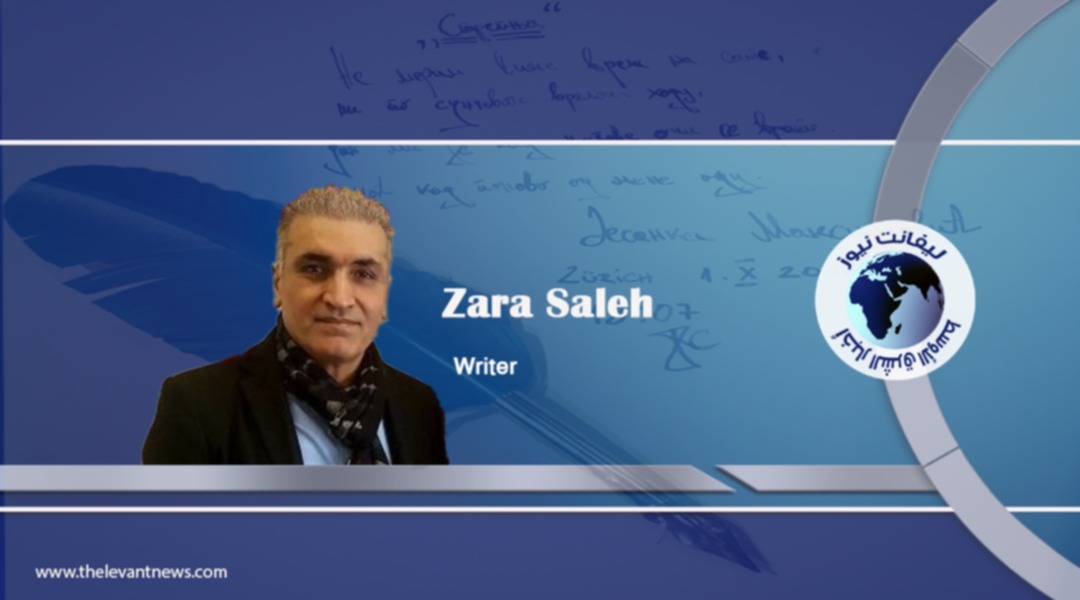-
Sochi Summit: Sharing interests between old enemies

In 2015, the escalation between Moscow and Ankara reached a peak and their relationship was at its lowest level after the Turkish military forces shot down a Russian warplane in the Syrian territories. As a result, the Russian response in the economic sphere has been expressed in banning tourism and stopping the imports of vegetables and fruits from Ankara.
However, Russia launched a diplomatic process of negotiation in Astana-Sochi on the Syria conflict in 2017 with the participation of Turkey and Iran as a part of Putin's strategy to regain control over the Syrian territories in Assad's regime's interest. Besides that, the controversial cooperation and mutual interests of the friendship of enemies between Moscow and Ankara were over the Syrian conflict. While Turkish President Recep Tayyip Erdogan has backed the Syrian opposition and its jihadi militias, Russian President Putin was on the opposite side and supported Assad's regime with Iranian assistance and its Shii-affiliated groups and Hizbullah.
Friday's meeting in Sochi between Putin and Erdogan which took around four hours has been described, from both sides, in a diplomatic way as they "underlined" the importance of their "cooperation and coordination to fight against all terrorist organisations" and hoping to bring stability in the region. Despite the importance of the trade and economical agreement that had been reached in Sochi, Erdogan's main aim during the summit still focuses on having a green light from Putin regarding a new launching military operation and invasion against Syrian Kurds. At the last summit in Tehran in July 2022 between Erdogan, Putin, and Iranian President Raisi, the Turkish President failed to convince its counterparts to further occupation of Kurdish areas in northeast Syria. Erdogan has cited the Syrian Democratic Forces (SDF) and was seeking to launch a military operation in Tel Rifat and Manbij in north and north-west Syria where there is a presence of Russian and Iranian militia.
On the other hand, Turkey's complex and controversial relations as a member of NATO have backed Ukraine by providing them with Drones but, at the same time, Ankara didn't join the sanctions against Russia. Simultaneously, Turkey in last month has played a mediation role between Russia and Ukraine with the direct presence of the UN regarding the delivery of Ukraine's grain from Ukrainian Black Sea ports which has become a global food crisis. Moreover, the common interests between Moscow and Ankara and they were mainly behind their trade agreement in Sochi's meeting and before that when both countries reached an agreement on the Akkuyu nuclear power plant project. Such economic agreements, of course, are inevitable for Turkey and Russia as they are facing a hard-economic situation due to the sanctions against Russia after its invasion of Ukraine, and Turkey is facing extremely high inflation and an economic crisis. In other words, Sochi's Summit between Erdogan and Putin could be seen, from Turkey's point of view, as another failure of Erdogan's "Kurdish Phobia" to launch a new occupation operation against the Syrian Kurd, and he will return back to Ankara with empty-hands.

BY: Zara Saleh
You May Also Like
Popular Posts
Caricature
BENEFIT Sponsors BuildHer...
- April 23, 2025
BENEFIT, the Kingdom’s innovator and leading company in Fintech and electronic financial transactions service, has sponsored the BuildHer CityHack 2025 Hackathon, a two-day event spearheaded by the College of Engineering and Technology at the Royal University for Women (RUW).
Aimed at secondary school students, the event brought together a distinguished group of academic professionals and technology experts to mentor and inspire young participants.
More than 100 high school students from across the Kingdom of Bahrain took part in the hackathon, which featured an intensive programme of training workshops and hands-on sessions. These activities were tailored to enhance participants’ critical thinking, collaborative problem-solving, and team-building capabilities, while also encouraging the development of practical and sustainable solutions to contemporary challenges using modern technological tools.
BENEFIT’s Chief Executive Mr. Abdulwahed AlJanahi, commented: “Our support for this educational hackathon reflects our long-term strategic vision to nurture the talents of emerging national youth and empower the next generation of accomplished female leaders in technology. By fostering creativity and innovation, we aim to contribute meaningfully to Bahrain’s comprehensive development goals and align with the aspirations outlined in the Kingdom’s Vision 2030—an ambition in which BENEFIT plays a central role.”
Professor Riyadh Yousif Hamzah, President of the Royal University for Women, commented: “This initiative reflects our commitment to advancing women in STEM fields. We're cultivating a generation of creative, solution-driven female leaders who will drive national development. Our partnership with BENEFIT exemplifies the powerful synergy between academia and private sector in supporting educational innovation.”
Hanan Abdulla Hasan, Senior Manager, PR & Communication at BENEFIT, said: “We are honoured to collaborate with RUW in supporting this remarkable technology-focused event. It highlights our commitment to social responsibility, and our ongoing efforts to enhance the digital and innovation capabilities of young Bahraini women and foster their ability to harness technological tools in the service of a smarter, more sustainable future.”
For his part, Dr. Humam ElAgha, Acting Dean of the College of Engineering and Technology at the University, said: “BuildHer CityHack 2025 embodies our hands-on approach to education. By tackling real-world problems through creative thinking and sustainable solutions, we're preparing women to thrive in the knowledge economy – a cornerstone of the University's vision.”
opinion
Report
ads
Newsletter
Subscribe to our mailing list to get the new updates!






















